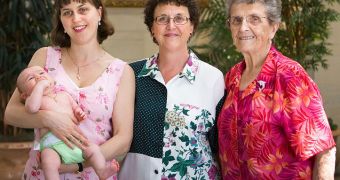Many people take joy in searching for their family's history, and also in researching their ancestors. But while this may seem harmless, a new research suggests that some things are better left undisturbed. According to the study, it may be that looking too deep into the past may awaken bad memories, which may ultimately widen existing rifts in families, and even cause open conflicts between members. It was also found that the risk of this happening is bigger in the case of large families. The more individuals live together, the higher the chances they will argue over something that happened a long time ago.
The team behind the study, led by University of Warwick expert Dr. Anne-Marie Kramer, explains that one of the factors which may promote conflict in these scenarios is for example discovering unwanted information about the family. In other circumstances, some people may want or need information about something that happened in the past from relatives that may not be willing to share what they know. When this happens, the researchers say that relatives of the person doing the research may provide false information, which further contributes to inflaming spirits, once the lie is uncovered.
The team leader presented the findings on April 9 in Glasgow, Scotland, at the annual conference of the British Sociological Association. She revealed to the audience that, of the 224 people in her study, about 30 mentioned that their research of their ancestors opened a “Pandora's Box of sorts.” For these people, their quest for their history turned into conflicts with other members of the family. The data the team used for this study were collected from the University of Sussex's Mass Observation Project.
"Along with the USA, Canada and Australia, contemporary British society is immersed in a seemingly unprecedented boom in the family heritage industry. The public is enjoying unparalleled public access to historical records in archives both material and digital, while social networking genealogy websites such as Genes Reunited facilitate the publication of virtual family trees alongside the 'rediscovery' of long-lost 'cousins.' Meanwhile, the media has been flooded with celebrity genealogy stories, with the BBC TV flagship program, Who Do You Think You Are? reaching audiences of over five million,” Dr. Kramer told the conference.
“But in investigating their family history, researchers could open up a Pandora's Box of secrets and skeletons, such as finding there are family issues around paternity, illegitimacy or marriage close to birth of children, criminality, health and mental health and previously unknown humble origins. The rifts are not confined to the historic past - bitterness and resentment towards siblings or parents can result where information is not disclosed,” she concluded, quoted by e! Science News.

 14 DAY TRIAL //
14 DAY TRIAL //